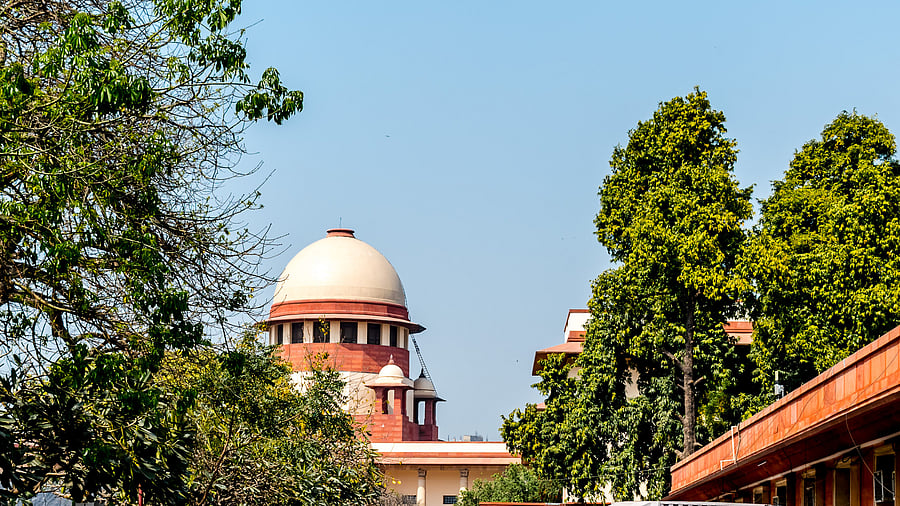
The Supreme Court of India.
Credit: iStock Photo
New Delhi: The Supreme Court on Friday agreed to hear on November 11, a plea filed by the ruling Tamil Nadu's ruling party Dravida Munnetra Kazhagam challenging the Special Intensive Revision (SIR) of electoral exercise ordered by the Election Commission.
The revision of electoral rolls started before the ongoing Bihar Assembly elections on June 24, was expanded, to cover 51 crore voters in 12 States and Union Territories, including Tamil Nadu, West Bengal, Kerala and Puducherry.
On a mentioning, a bench led by Chief Justice of India B R Gavai said, the court will list the case for hearing on Tuesday, November 11.
The ruling DMK on Monday filed a petition before the Supreme Court for quashing the EC's order for SIR of electoral rolls, scheduled to begin across Tamil Nadu on November 4.
Terming the exercise as unconstitutional, the petitioner claimed that it was aimed at mass disenfranchisement by introducing an arbitrary cut-off date (2002/2005) and by excluding commonly used documents such as ration card, PAN card and Voter ID from the purview of the process.
It claimed that the SIR constituted a violation of fundamental rights guaranteed under the Constitution, including equality before law (Article 14), the right to freedom of movement and residence (Article 19), and protection of life and personal liberty (Article 21).
"SIR will arbitrarily, unjustifiably and illegally disenfranchise lakhs of citizens from electing their representatives, thereby disrupting free and fair elections and democracy, which is part of the basic structure of the constitution," the plea said.
The plea also contended the decision violated the guarantee of substantive equality under Article 14 and the right to universal adult suffrage under Article 326.
It also argued that the "callous" attitude of ECI in conducting SIR is also marred by insufficient time for grievance redressal.
The plea challenged the EC's orders of June 24, 2025 and October 27, 2025, which directed the conduct of SIR.
